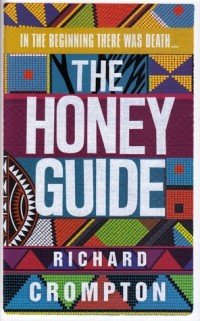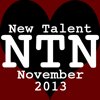Released on St Valentine’s Day this year, The Honey Guide is Richard Crompton’s debut and it’s been getting some love from authors like Ian Rankin. It’s an ideal and welcome arrival for New Talent November.
It’s 2007, and in the run-up to Kenya’s national elections, Nairobi is poised for tribal strife. Election-rigging is charged early on and voters who are not protesting in the streets are closing their shutters in anticipation of violence. In the midst of the tumult, local police officer Mollel is summoned to investigate the murder of a prostitute who appears to be of Maasai origin like himself. Since the victim is discovered in a drainage ditch with her genitals horribly mutilated, it raises a suspicion of motives related to tribal traditions of female circumcision and the social stigma of prostitution.
Mollel follows the natural path of the sewer and it leads to a halfway house for women, owned by the church of a charismatic Christian evangelist. When it is discovered that the dead woman was pregnant, suspicion soon turns to the pastor, who shelters women, his wife, who performs secret abortions, and a rich benefactor who may have been the woman’s last client. Mollel also finds a witness, of sorts. A blind street hustler heard the crime, which occurred in the same area where the GSU, the government’s infamously brutal army unit, were conducting secret maneuvers in preparation for the post-election chaos.
As Mollel roams the crowded shanty towns surrounding the crime scene, we learn a lot about Nairobi tribal history and Mollel’s own humble Maasai origins. We discover he is a single father as a result of the notorious US embassy bombing and is constantly concerned about the safety of his young son.
Early on you’ll realise that the case would easily have swept in under the carpet were it not for Mollel’s dogged investigation. Our detective works in less than ideal conditions for solving a murder; Third World equipment, a corrupt and apathetic police force, a new partner who must earn his trust, and tribal tensions that simmer behind just about every conversation. These tensions are brought into palpable relief with each interview he conducts, as old animosities in the surrounding slums threaten to explode. Those who are not stocking up on food and supplies are leaving the city altogether.
As the election looms, Mollel gets closer to the truth when he finds a prostitute named Honey, who was the victim’s closest friend. As the case and local events both come to a head, Mollel inevitably finds himself trapped in the middle of a firestorm as he struggles to find the truth at all costs.
Crompton’s impressive debut novel artfully weaves old Maasai lore and African colonial history into a solid police novel set in recent times, complete with the suspenseful elements of a whodunnit. He effectively creates a visceral sense of dread as the threat of violence smolders in the maze of shanty towns our protagonist wanders through, possibly toward his own demise. There is a very authentic feel to Crompton’s Kenya, with its detailed cultural topography and subdued humour about life in the streets. Fragments of Mollel’s past life as a Maasai warrior who comes to the big city are revealed gradually during the investigation.
The high caliber of Crompton’s writing combined with an appealing detective makes this an auspicious beginning for a unique new crime series. Recommended for readers who like mysteries with decent plots guided by a fascinating detective with large holes in his earlobes, and also don’t mind learning about some of Kenya’s troubled history in the process.
Weidenfeld & Nicolson
Print/Kindle/iBook
£4.99
CFL Rating: 5 Stars











